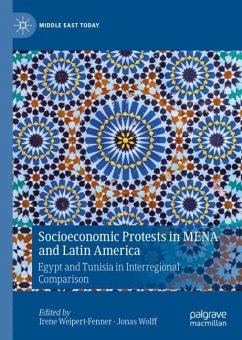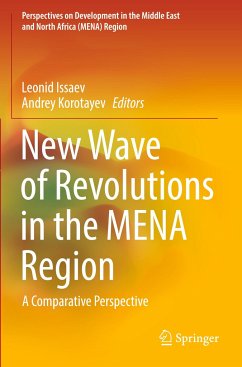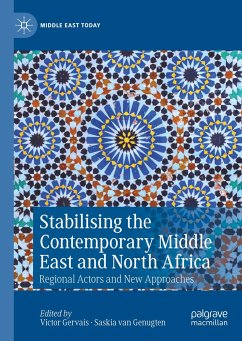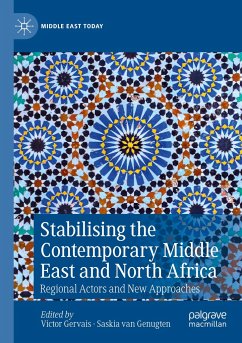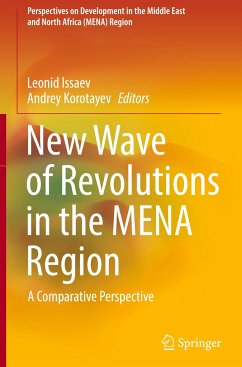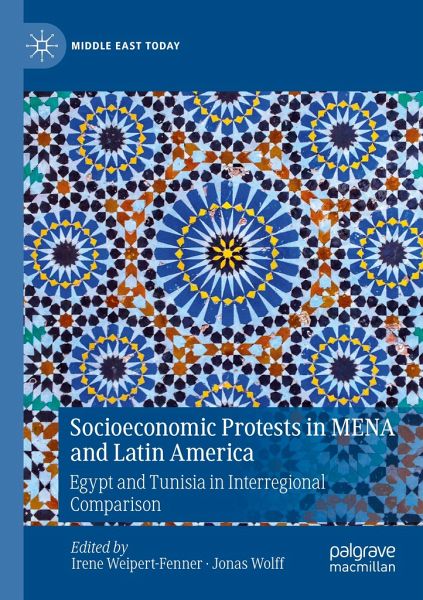
Socioeconomic Protests in MENA and Latin America
Egypt and Tunisia in Interregional Comparison
Herausgegeben: Weipert-Fenner, Irene; Wolff, Jonas
Versandkostenfrei!
Versandfertig in 6-10 Tagen
65,99 €
inkl. MwSt.

PAYBACK Punkte
33 °P sammeln!
This edited volume presents a detailed account of the dynamics of socioeconomic contention in Egypt and Tunisia since 2011. Combining quantitative and qualitative methods, it analyses what has happened to the socioeconomic grievances that played a key role in the mass mobilizations of 2010 and 2011. The book is based on an original data set of socioeconomic protests in the two countries and on in-depth case studies that cover the two most important types of socioeconomic contention: labor protests and protests by socioeconomically disadvantaged people outside the formal economy. Drawing on a s...
This edited volume presents a detailed account of the dynamics of socioeconomic contention in Egypt and Tunisia since 2011. Combining quantitative and qualitative methods, it analyses what has happened to the socioeconomic grievances that played a key role in the mass mobilizations of 2010 and 2011. The book is based on an original data set of socioeconomic protests in the two countries and on in-depth case studies that cover the two most important types of socioeconomic contention: labor protests and protests by socioeconomically disadvantaged people outside the formal economy. Drawing on a systematic review of comparative research on Latin America, the authors argue that the dynamics of socioeconomic contention in contemporary Egypt and Tunisia reflect a deep-seated crisis of popular sector incorporation. This work promises to enrich the scholarly and the political debates on Egypt and Tunisia, the MENA region and on contentious politics in times of political change.
Chapter 10 of this book is available open access under a CC BY 4.0 license at link.springer.com.
Chapter 10 of this book is available open access under a CC BY 4.0 license at link.springer.com.





